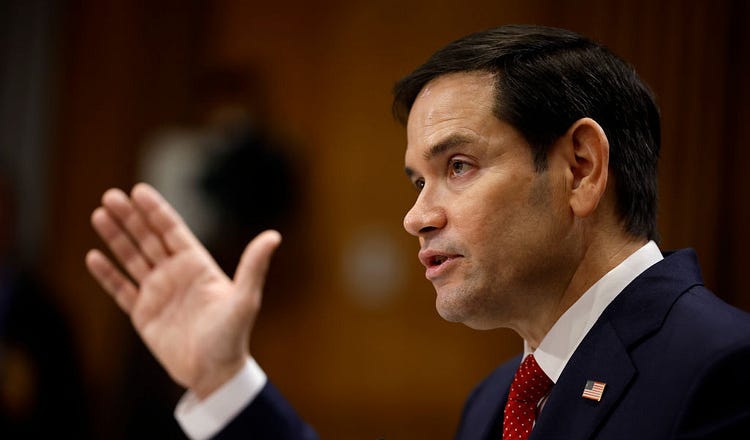
Senator Marco Rubio (R-FL) sees the Middle East on fire, and he considers it an opportunity. That was the bottom line of his kid-gloves Senate confirmation hearing on Wednesday for his nomination to be secretary of state.
During the hearing, Jim Risch, the chairman of the Senate Foreign Relations Committee and a Republican from Idaho, announced that a three-phase ceasefire deal had been reached between Israel and Hamas—and Rubio had a reply:
“We don’t know yet for sure, but there are opportunities available now in the Middle East that did not exist 90 days ago,” he said. “Whether it’s what’s happened in Lebanon, whether it’s what’s happened in Syria, whether it’s what hopefully will happen with this ceasefire.”
Those opportunities include the following:

